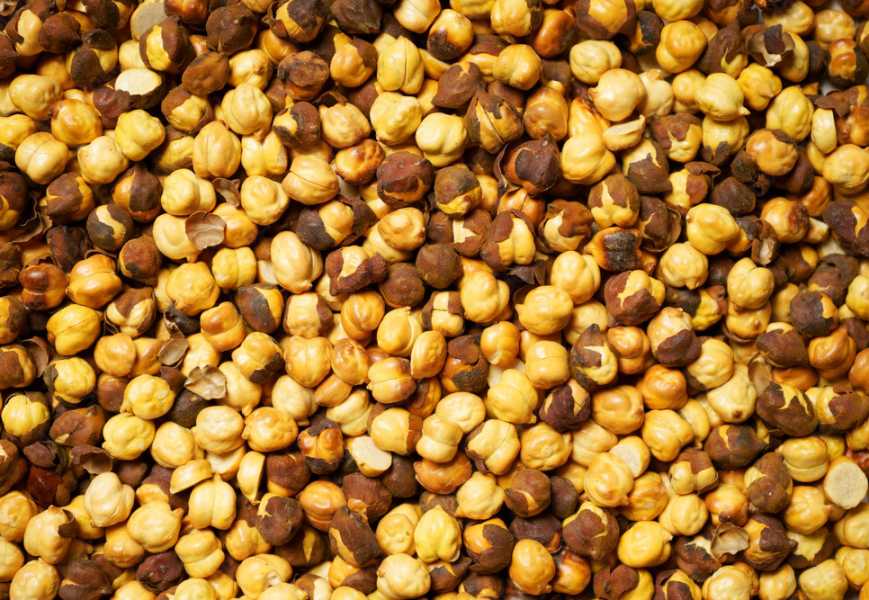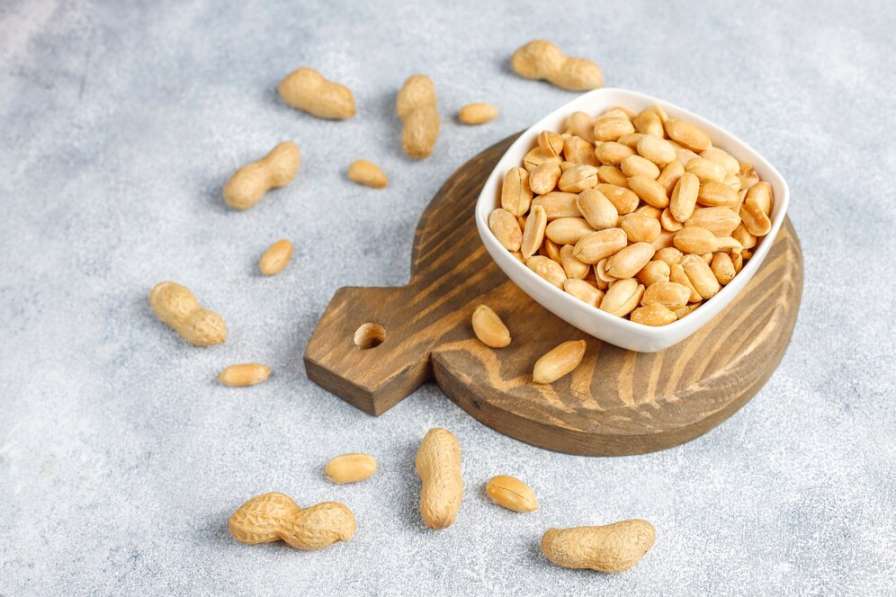Benefits of popcorn: Popcorn is high in fibre and includes phenolic acids, which are an antioxidant. Furthermore, popcorn contains whole grain, which is an essential dietary type associated with a decreased risk of diabetes, heart disease, and hypertension in people.

Popcorn is high in antioxidants, helps in metabolism, provides energy, reduces depression, and supports healthy bone function. Popcorn controls blood sugar levels, kills tumour cells, reduces food cravings, slows ageing, lowers cholesterol, treats anaemia, and relieves constipation.
Popcorn is made by roasting starch-filled grains with a hard shell. When not loaded with extra ingredients, the snack is a healthy, light treat. It’s also popular as it’s fast and easy to prepare at home.
What is popcorn?
- Popcorn is a form of corn that ‘pops’ when it is heated. It has grown in popularity throughout the years. Because it was so inexpensive, it was extremely popular during the Great Depression. Every year, Americans consume over 1.2 billion pounds (500 million kg), making it America’s most popular snack item by volume.
- Corn was developed in Mexico over 9,000 years ago and is still one of the most important vegetables produced each year across the world. Popcorn as a snack has been unearthed in archaeological sites in Mexico dating back to 3600 B.C.
- The origins of popcorn are unknown, although it appears that it gained popularity in the United States initially in the Great Lakes region, where the Iroquois people arrived in considerable numbers. The first verifiable references to ‘popped corn’ date back to around 1820, and records from the mid-1800s mention popped corn as a common family pleasure.
- Popcorn’s popularity increased again in the 1890s, thanks to candy store owner Charles Cretors. In order to better roast nuts for commercial sale at his store, he invented the first commercial-grade popcorn popper, which he later displayed in a horse-and-buggy style design. Then came the early twentieth century, when popcorn in a movie theatre became commonplace.
Nutritions in popcorn
Many people are unaware that popcorn is a whole-grain food, which means it is naturally high in several vital nutrients. Many studies have linked whole-grain eating to health advantages such as decreased inflammation and a lower risk of heart disease.
The following nutrients can be found in 100 g of popcorn:
Energy 387 kcal
Water 3.32 g
Protein 12.9 g
Fibre 14.5 g
Iron 3.19 mg
Magnesium 144 mg
Phosphorus 358 mg
Potassium 329 mg
Zinc 3.08 mg
B6 vitamin 0.157 mg
Lipid 4.54 g
How to prepare nutritious popcorn
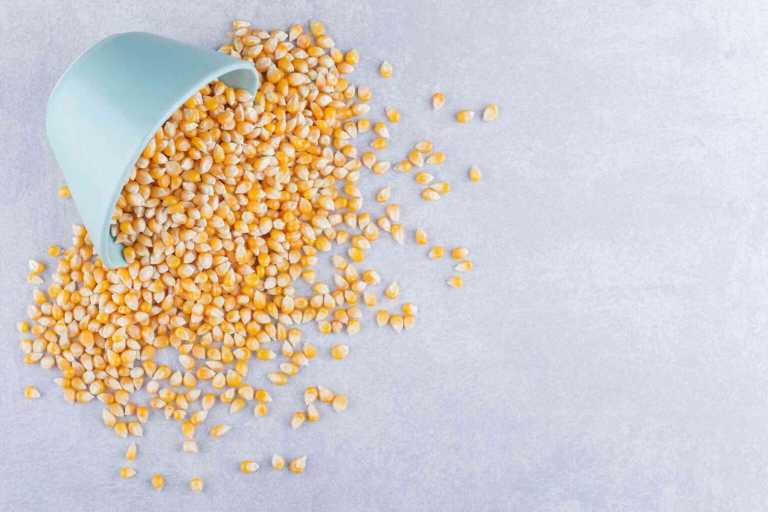
Here’s a quick and easy recipe for healthy popcorn:
Ingredients
- 3 tablespoons olive oil or coconut oil.
- 1/2 cup popcorn kernels.
- 1/2 teaspoon salt.
Directions
- Cover and heat the oil and kernels in a big pot.
- Cook for about 3 minutes over medium-high heat, or until the popping almost stops.
- You can enhance the flavour by sprinkling it with fresh herbs or spices.
Here’s a little video showing you how to make very nutritious popcorn in minutes:
Benefits of popcorn
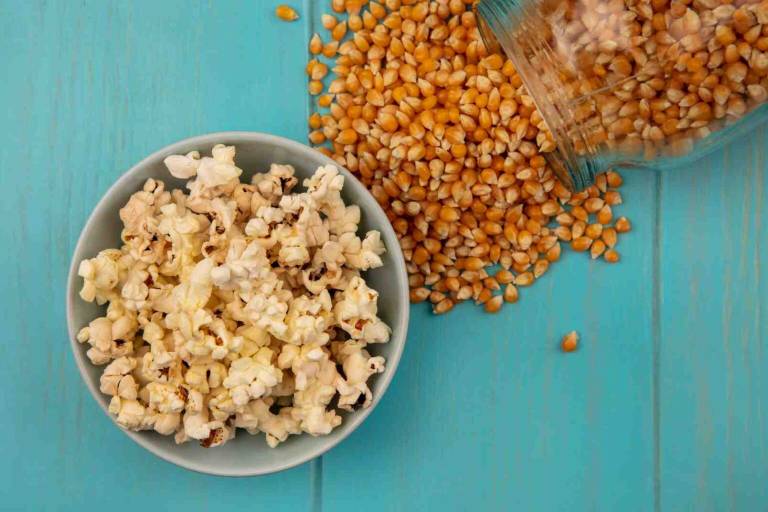
The health benefits of consuming popcorn are listed here. You can easily consume popcorn with butter, coconut oil, or olive oil, depending on your flavour preferences.
1. Popcorn is good for your digestion.
Popcorn is high in dietary fibre, which helps with digestive regularity, maintains a sensation of fullness throughout the day, is essential for a healthy heart, and may even help to prevent colon cancer. Eating popcorn may help in maintaining a healthy gut, which is important not just for digestion but also for a healthy immune system, due to its high fibre content.
2. Popcorn helps metabolism and supplies energy.
Popcorn contains a lot of vitamin B, such as B3, B6, folate, and pantothenic acid. Many physiological functions require vitamin B to function properly. The creation of energy and the metabolism of various nutrients are two examples.
3. Popcorn helps to maintain good bone function.
Popcorn contains phosphorus, a mineral that supports healthy bone function as well as the operation of many different types of cells in the body. Another mineral found in popcorn that helps bone health is manganese.
4. Benefits of antioxidants in popcorn
Popcorn includes carotenoid antioxidants like lutein and zeaxanthin, which not only promote eye health and may protect against macular degeneration caused by age, but also fight systemic inflammation, which may be at the root of a variety of chronic illnesses.
5. Popcorn regulates blood sugar levels.
Dietary fibre also affects blood sugar levels in the body. When the body gets enough fibre, it regulates the release and management of blood sugar and insulin levels better than people who don’t get enough fibre. Popcorn decreases blood sugar levels. Reducing blood sugar variations is a big benefit for diabetic people; hence, popcorn is always suggested if you have diabetes.
6. Popcorn Protects Against Ageing
Popcorn has anti-aging properties. Free radicals cause far more harm than cancer. They have been connected to a number of age-related symptoms such as wrinkles, age spots, macular degeneration and blindness, muscle weakness, cognitive decline, osteoporosis, Alzheimer’s disease, dementia, hair loss, and a variety of other problems that become noticeable with ageing. Popcorn’s strong antioxidants, which combat the effects of free radicals, can help a person feel healthy.
7. Popcorn helps to prevent anaemia.
The USDA reports that 28 grammes of popcorn provide 0.9 mg of iron. This may seem like a modest amount, but adult males only need 8 milligrammes of iron each day. Adult women, on the other hand, require 18 mg per day due to blood loss during menstruation. Almost 10% of women, according to some surveys, are iron deficient. As a result, including popcorn in one’s diet provides the body with enough iron and helps to prevent disorders like anaemia.
8. Popcorn helps to lower cholesterol levels.
Whole grains contain the type of fibre that can eliminate excess cholesterol from the walls of blood vessels and arteries; thereby, popcorn lowers cholesterol levels in the body and thus lowers the chances of dangerous cardiovascular conditions like atherosclerosis, heart attacks, and strokes. Popcorn also reduces the strain on the cardiovascular system by requiring the heart to work less hard to flow blood through clogged veins and arteries.
9. Popcorn helps with constipation.
Because popcorn is made entirely of whole grains, its insoluble fibres help keep the digestive tract in balance and avoid constipation. Researchers discovered that people who ate popcorn on a regular basis boosted their daily fibre intake by 22%. Consuming more fibrous meals helps with constipation relief.
10. Control your body weight.
Popcorn can help you lose weight. Popcorn improves digestion when ingested in moderation on a daily basis. Popcorn has a high fibre content while being lower in calories. It also helps in the reduction of hunger.
11. Promote Skin Health with Popcorn
Polyphenols are the antioxidants found in popcorn. Polyphenols are organic compounds found in plants, fruits, and vegetables. They combat oxidative stress to protect your skin from harm. The study was successful in demonstrating that there is no reduction in polyphenolic content when popcorn is heated, or, in this case, popped. It remains the same and is a strong source of polyphenolic antioxidants, which can help protect your skin when consumed.
12. Popcorn Can Help You Feel Better
Tryptophan, a naturally occurring amino acid found in grains, may aid in the manufacture of serotonin, a neurotransmitter connected with feelings of well-being and happiness. A study found that a tryptophan-rich diet may impact brain serotonin levels. This suggests that popcorn may have a favourable effect on mood and cognition.
Also, keep in mind that the link between diet and mood is complicated and influenced by a variety of factors, including heredity and individual variances. Still, including tryptophan-rich foods in your diet may be a simple and natural method to potentially improve your mood and overall mental health.
Side Effects of Popcorn and Allergies:
When consumed in reasonable amounts, popcorn is safe. Popcorn, on the other hand, may cause allergic reactions in some people. These are as follows:
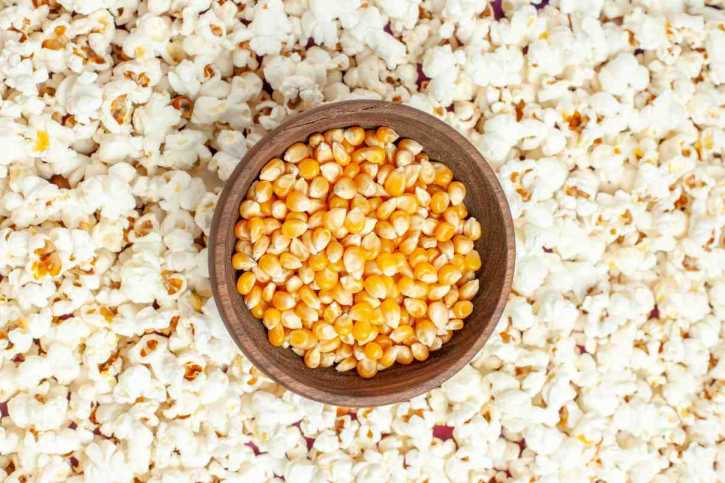
1. May worsen gastrointestinal problems
By producing a phytobezoar, popcorn kernels can induce significant intestinal blockage. Abdominal pain, acid reflux, and distention are all symptoms of gastric bezoars. They can produce constipation, nausea, vomiting, stomach pain, distension, diarrhoea, loss of appetite, and weight loss in the small bowel.
2. Breathing Shortening and Wheezing
Diacetyl, found in butter-flavored microwave popcorn, can induce popcorn lung (bronchiolitis obliterans). Popcorn lung causes shortness of breath and wheezing. Diacetyl is also hazardous when inhaled in large quantities. This, however, is a fairly uncommon side effect of popcorn.
3. Allergic Response
Corn allergy sufferers should avoid eating popcorn. If you have symptoms such as swollen lips or difficulty breathing, seek medical attention right away.
People who have inflammatory bowel disease should also avoid popcorn because it may result in bowel inflammation. However, there hasn’t been enough research done in this area.
Most of these side effects are uncommon and resolve within a day or two with medical attention.
- People who consume popcorn may require emergency medical attention if they have allergic symptoms such as swelling of the mouth or difficulty breathing.
- People who have inflammatory bowel disease should avoid popcorn because it can make their symptoms worse.
- Popcorn may aggravate gastrointestinal problems.
FAQs (Frequently Asked Questions)
1. Is it safe to eat popcorn on a daily basis?
Yes, popcorn can be consumed on a daily basis, but only in moderation.
2. Is popcorn bad for your colon?
Popcorn can irritate the colon if consumed in excess.
3. When is it inappropriate to consume popcorn?
If we have allergies or chronic gastrointestinal disorders, we should avoid eating popcorn.
4. What is the healthiest type of popcorn?
The healthiest popcorn is air-popped popcorn with no additional flavours.
5. Is popcorn bad for your stomach?
No, if popcorn is consumed in moderation, it does not cause stomach upset

